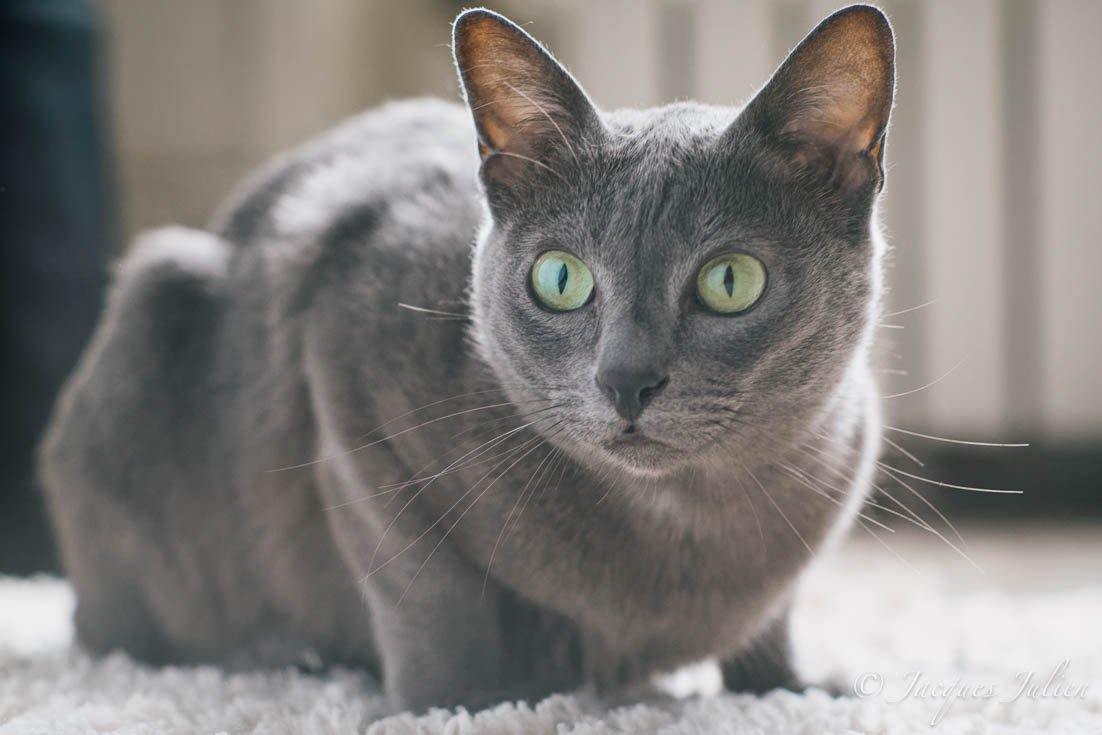Have you ever met a cat that seemed more like a tiny tiger than a cuddly companion? While cats are often seen as gentle and sweet, some breeds come with a reputation for being feisty, unpredictable, and even aggressive. For families with young children, choosing the right feline friend is not just about cuteness—it’s about safety. A playful nip might be cute to some, but it can be downright dangerous in the wrong circumstances. If you’re a cat lover who’s also a parent, knowing which breeds to avoid can save everyone a lot of scratches—and tears.
Savannah Cat
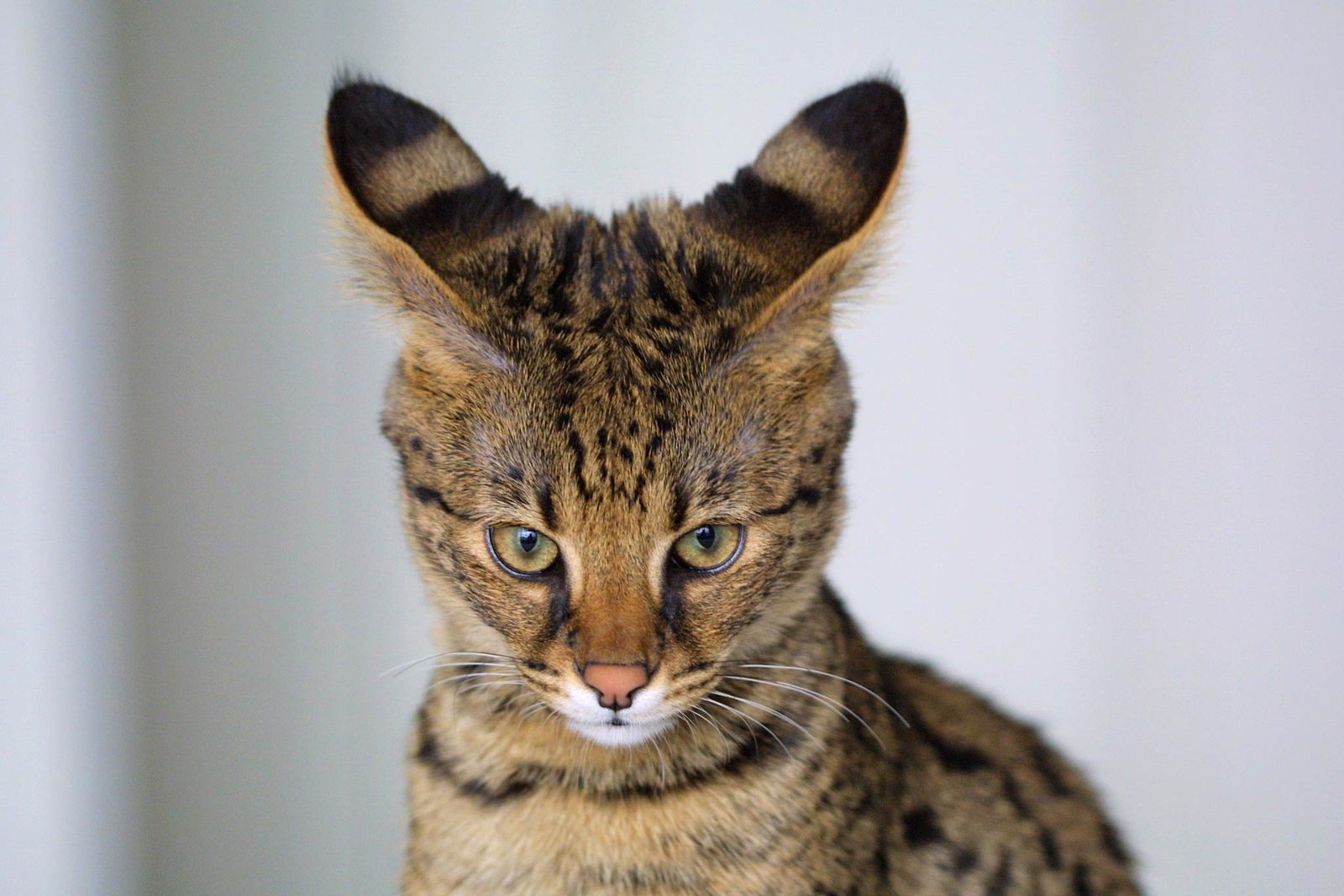
The Savannah cat is a striking, exotic-looking breed, famous for its tall, lean body and stunning spotted coat. These cats are a hybrid between a domestic feline and a wild serval, which gives them their unique appearance—and their wild instincts. Savannah cats are high-energy and very intelligent, but their playfulness can quickly turn rough. They tend to use their claws and teeth when overstimulated, which makes them less than ideal for homes with small kids. Their unpredictable reactions to sudden movements or loud noises can also spell trouble for families with energetic children.
In addition, Savannah cats require a lot of mental stimulation and room to roam. Without enough activity, they may become bored and destructive. Their wild heritage means they can be territorial and sometimes aggressive if they feel threatened or challenged. While they can form deep bonds with their owners, their demanding personalities and potential for aggression make them a risky choice for households with young kids.
Bengal Cat

Bengal cats are breathtakingly beautiful, with leopard-like spots and an athletic build. But beneath that gorgeous exterior lies a cat with a strong will and a fiery temperament. Bengals are known for their high energy and intelligence, which can make them wonderful pets for experienced cat owners. However, they are not the best choice for families with young children. Their play can be intense and sometimes aggressive, especially if they become overstimulated or frustrated.
Bengals are very territorial, and they don’t always appreciate being handled or cuddled, especially by unpredictable little hands. When annoyed or startled, they might scratch or bite without much warning. These cats need a lot of attention and mental challenges to stay happy, but even with the best care, their naturally assertive personalities can make them dangerous around small kids.
Siamese Cat
Siamese cats are famous for their striking blue eyes and vocal personalities, but they also have a reputation for being moody and sometimes aggressive. These cats can be extremely attached to their owners and may become jealous or territorial when there’s competition for attention. While they can be affectionate with adults, their interactions with children can be less predictable. Fast movements or rough play from kids can easily upset a Siamese, leading to hissing, scratching, or biting.
Another thing to consider is the Siamese cat’s high intelligence. If not given enough stimulation or if they feel ignored, they can turn to destructive or aggressive behaviors. Their sharp claws and quick tempers make them less than ideal for homes with young children who might not understand a cat’s boundaries. For families with little ones, a more laid-back breed might be a safer bet.
Chausie
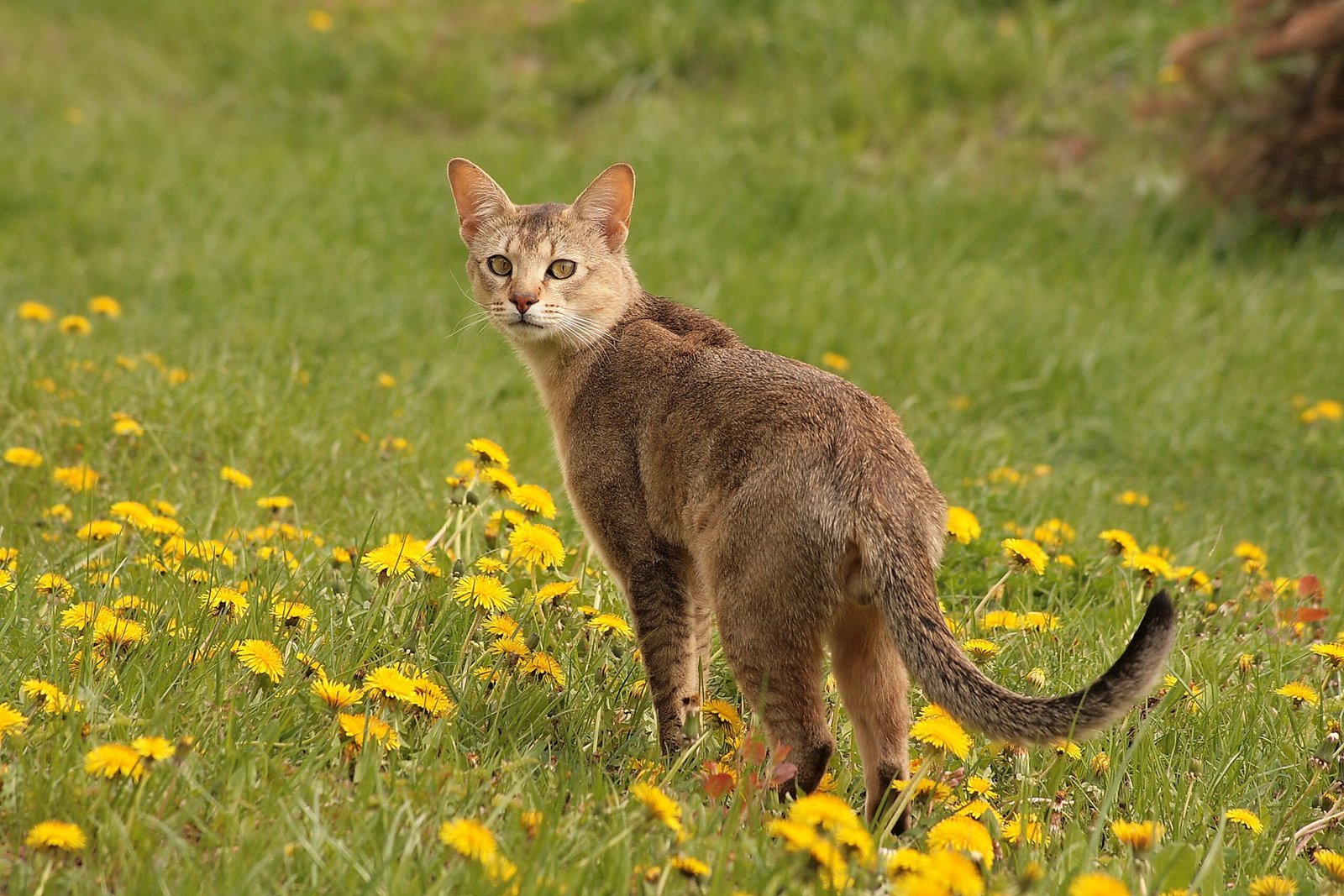
The Chausie is a rare breed developed from crossing domestic cats with wild jungle cats. This unique heritage gives the Chausie a wild look and an equally wild personality. These cats are known for their athleticism and independence, but also for their unpredictable moods. Chausies are not easy-going lap cats; instead, they can be territorial and assertive, especially if they feel threatened or overstimulated. Their quick reflexes and strong jaws can result in accidental injuries to curious children.
Chausies also require a lot of space and stimulation. Without it, they may become frustrated and act out with aggressive behavior. Their natural instincts make them unsuitable for homes with small children, as they may not tolerate the unpredictable actions of kids. For families seeking a gentle and patient companion, the Chausie is not the breed to consider.
Egyptian Mau
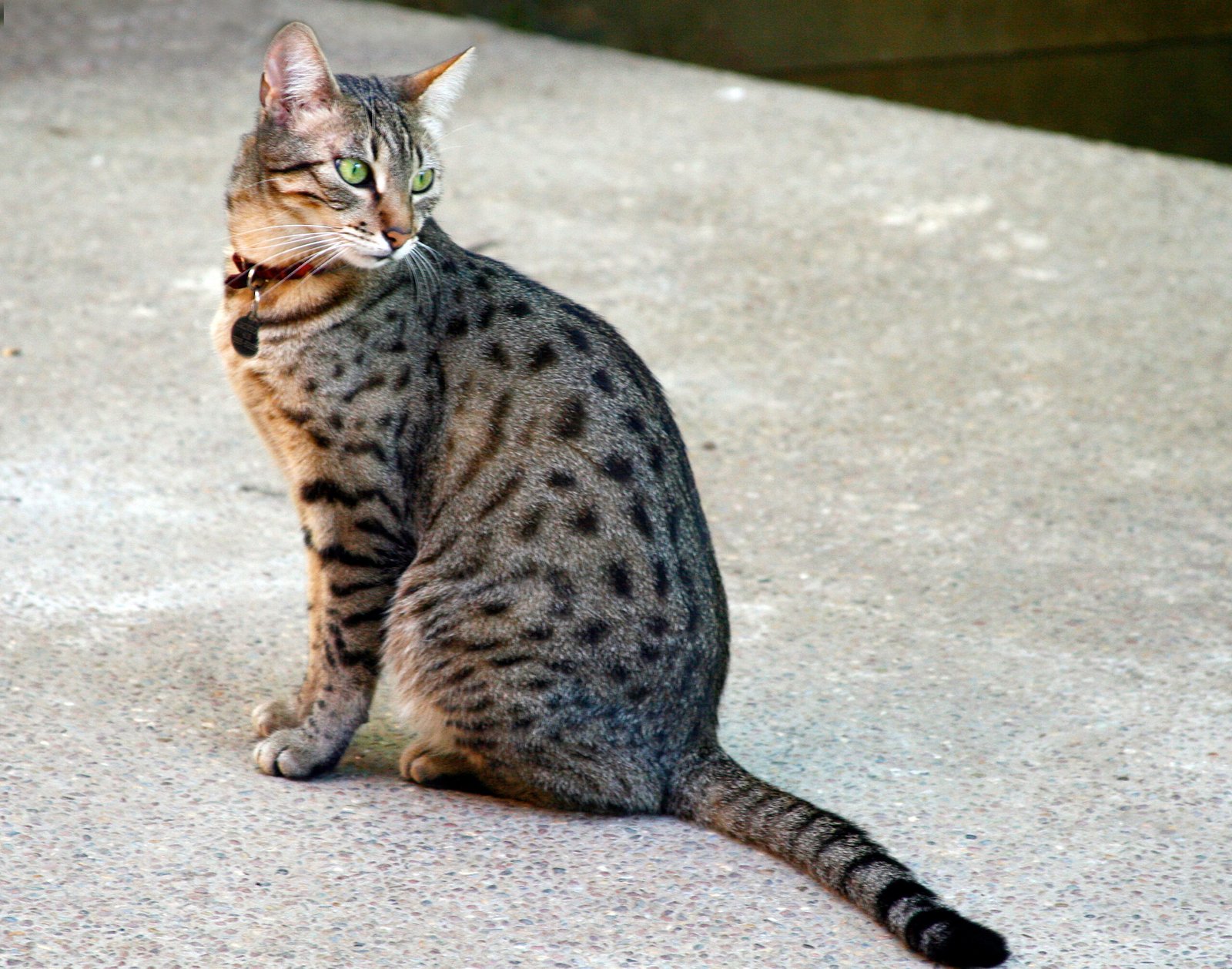
With their striking spotted coats and graceful movements, Egyptian Maus are truly captivating. But these cats are also known for being highly sensitive and sometimes territorial. While Maus can be affectionate and even loyal to their owners, they get easily startled and may lash out if they feel threatened or cornered. Children, with their unpredictable noises and sudden movements, can quickly overwhelm an Egyptian Mau.
Additionally, Egyptian Maus tend to bond closely with one person in the household and may be wary or even hostile toward strangers—or other family members, including kids. They are quick, agile, and have sharp claws, which can easily cause injuries if they react defensively. For families with small children, the skittish and sensitive nature of the Egyptian Mau can lead to more stress than snuggles.
Korats

Korats are an ancient breed from Thailand, cherished for their stunning silver-blue coats and large, expressive eyes. While they may look gentle and serene, Korats are known for being territorial and sometimes possessive of their favorite people. They don’t always appreciate visitors or loud, unpredictable environments, which makes them a tricky fit for families with young kids. When stressed or annoyed, Korats can be quick to swat or bite.
Korats are also highly intelligent and need routine and calmness in their daily lives. They can become anxious or even aggressive if their environment feels chaotic—which, let’s face it, is often the case with children running around. If you’re looking for a cat to fit seamlessly into a busy, noisy household, the sensitive and sometimes grumpy Korat might not be the best companion.
Sphynx
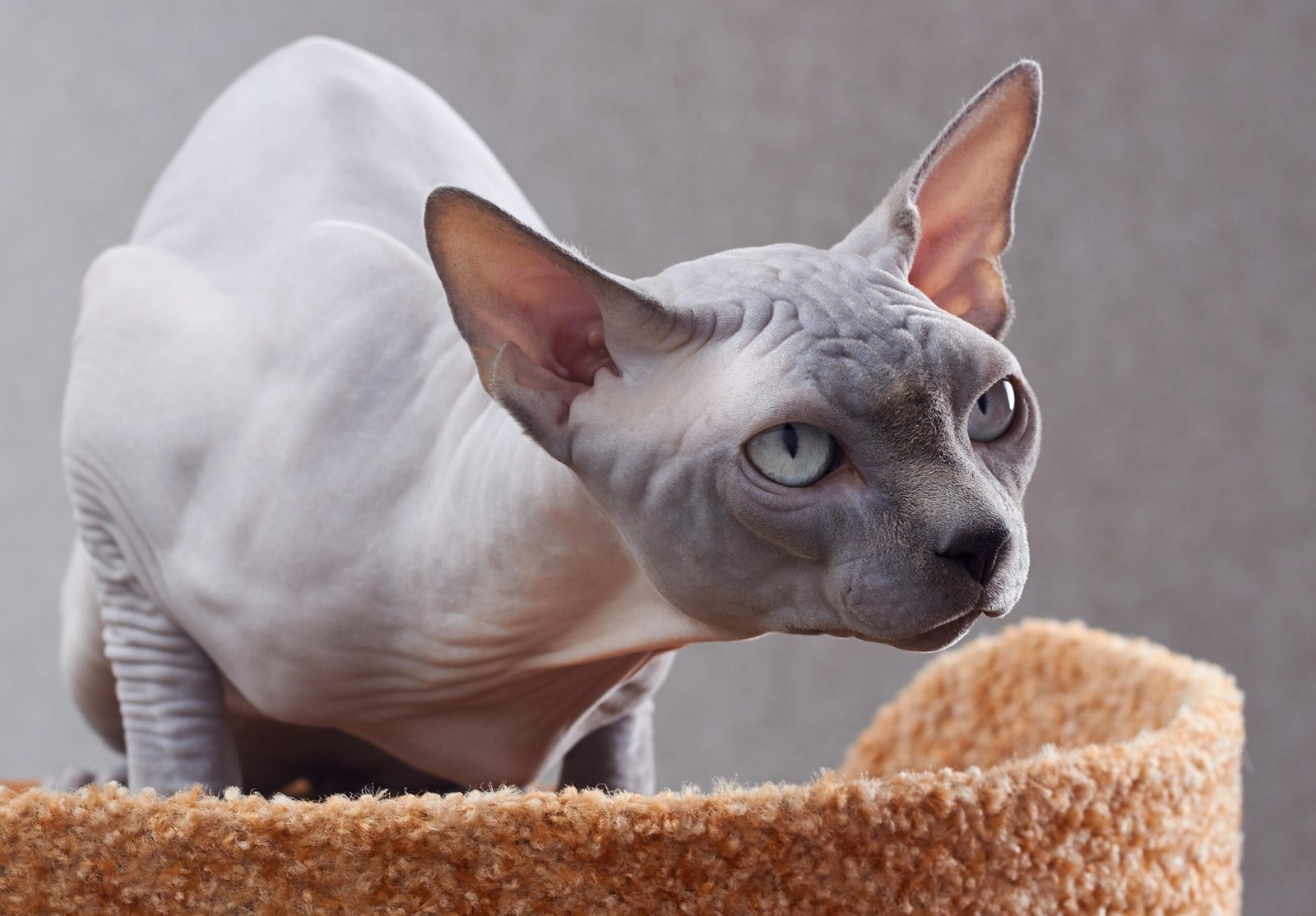
The hairless Sphynx is a breed that always turns heads, but don’t let their unique look fool you. While many assume they’re gentle because of their cuddly appearance, Sphynx cats can be energetic and demanding. They crave attention and can be jealous if they feel neglected, sometimes acting out with nips or scratches. Sphynx cats don’t always have the patience for rough handling, making them risky for homes with kids who might not know how to be gentle.
They also get cold easily and may seek warmth by crawling under blankets or into laps, but sudden moves or loud noises can startle them. When frightened, Sphynx cats can react defensively, using their claws or teeth. Their neediness, combined with their potential for aggressive reactions, means they’re better suited for adult households or families with older, cat-savvy children.
Scottish Fold

Scottish Folds are instantly recognizable with their adorable folded ears and sweet expressions, but looks can be deceiving. These cats are known to be sensitive to changes in their environment and can become anxious or irritable in busy households. Scottish Folds often dislike excessive handling, especially by children who may not understand how to respect their space. If pushed too far, these cats may defend themselves with scratching or biting.
Another concern with Scottish Folds is their predisposition to certain health issues, which can make them more irritable or uncomfortable, further increasing the likelihood of aggressive behavior. A stressed or unwell Scottish Fold is not a good match for a household full of energetic, unpredictable kids. Their gentle appearance hides a temperament that may not be as tolerant as families with young children need.
While cats are often seen as independent and low-maintenance companions, not all breeds are well-suited for homes with young children. The eight breeds we’ve highlighted tend to be more territorial, easily overstimulated, or less tolerant of unpredictable behavior—traits that can lead to aggression if boundaries aren’t respected. This doesn’t mean these cats can’t be loving or loyal, but they thrive best in calm, structured environments. When choosing a pet for a family with kids, it’s crucial to prioritize temperament over appearance. The right match creates a safer, more harmonious home—for both your children and your feline companion.

